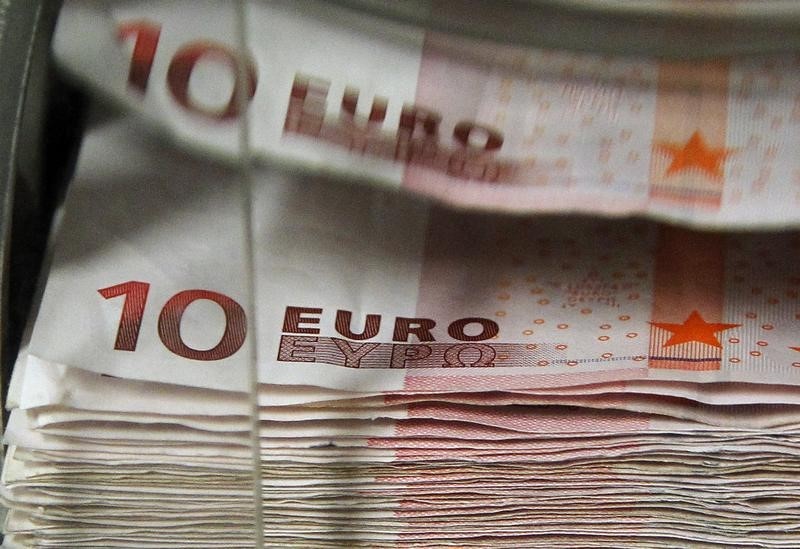Investing.com - The euro was sharply lower against the dollar on Thursday after the European Central Bank indicated that it could expand its quantitative easing program amid increased downside risks to its inflation outlook.
EUR/USD was down 0.86% to 1.1127 from around 1.1231 earlier.
The drop in the euro came after ECB President Mario Draghi said the bank’s asset purchase program provides sufficient flexibility to adjust the size, composition and duration of the program.
The ECB launched its €60 billion per month quantitative easing program in March after the euro area briefly slid into deflation and it is due to run until September 2016.
Draghi also said the share limit on the asset purchase program has been increased from 25% to 33%, meaning the ECB could buy more of a single asset.
The ECB lowered its forecast for growth and inflation, citing oil prices and slowing growth in China.
The bank now expects annual inflation of 0.1% in 2015, down from 0.3% previously, before picking up to 1.1% in 2016.
The bank downgraded its forecast for economic growth this year to 1.4% from 1.5% previously. It now expects growth to pick up to 1.7% in 2016 and 1.8% in 2017.
The single currency was also sharply lower against the yen and the pound, with EUR/JPY down 1.01% to 133.72 and EUR/GBP losing 0.63% to trade at 0.7291.
In the U.S., data on Thursday showed that the number of individuals filing new applications for unemployment benefits rose by 12,000 to 282,000 last week, but the underlying trend remained consistent with a strengthening labor market.
Economists had expected jobless claims to increase by 5,000.
Another report showed that the U.S. trade deficit contracted by 7.4% to $41.9 billion, the lowest level in five months.
The U.S. dollar index, which measures the greenback’s strength against a trade-weighted basket of six major currencies, rose 0.53% to 96.39, boosted by the weaker euro.
The dollar’s gains were held in check ahead of Friday’s U.S. jobs report for August, which investors hoped would provide clarity on the likelihood of a near-term interest rate hike by the Federal Reserve.
Recent turmoil in global financial markets has raised doubts over whether the Fed will hold off hiking interest rates from record lows at its upcoming policy meeting on September 17.
